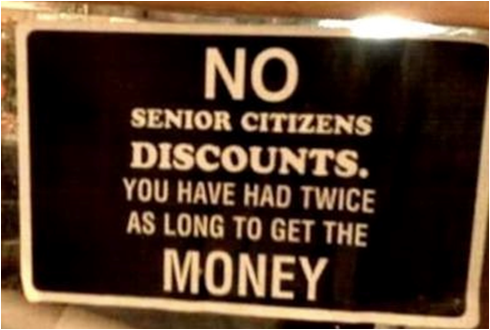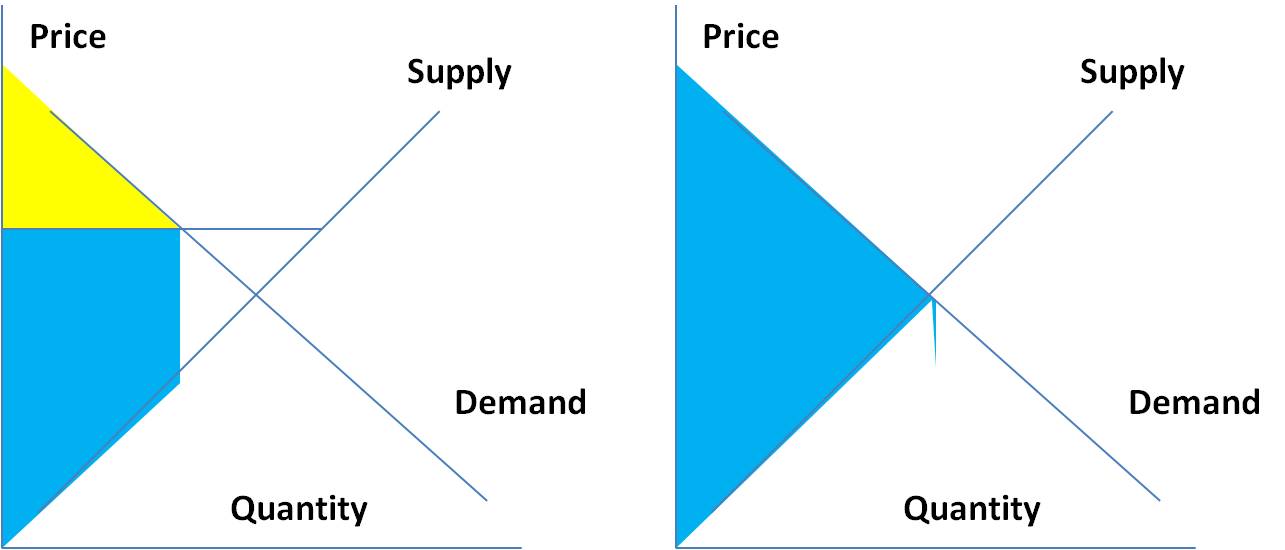Airfares increase as you search: Price Discrimination?

Overview
Price discrimination is quite an ugly word. We hear of “discriminate” and cringe, but it is not as racist as it sounds. Price discrimination is actually very commonplace in marketing, and just means having different prices for people with different needs.
I have always wondered at whether airlines increase prices as a single customer queries or searches more for a particular flight and day… and many have swore to me that they have seen it themselves when they browse for tickets: prices would rise when they went back to a bargain- sometimes dropping back to the original price when they use another computer. While some people have not specifically encountered this, others (my dad namely) uses multiple computers as a habit when booking air tickets.
What is Price Discrimination?
As mentioned, price discrimination is when products and services and priced differently for different consumers. Some common examples of price discrimination include how airlines have first, business, and economy class seats. Understanding that some people want to travel cheaply, others wanted a comfortable service and are willing to pay more, and others yet do not mind paying anything for luxury, these three classes were setup for essentially the same core service: getting people from A to B.
Similarly, movie theatres and other places priced based on age: understanding that children would entice parents to watch, and that seniors and teens have less spending money and tend to be more careful spenders than full-time workers.
The most humorous form of price discrimination I have heard of includes a park in Thailand. I was told that the park had a sign which read “Tourists”, and charged a minimal fee for entry. On the other side, “Free Admission” read in the language of Thai for locals.
Essentially, price discrimination exists because consumers do not value the same product at the same price. Some are more willing to pay than others. Price discrimination allowed businesses to charge higher-valuing customers more, while also serving those who valued services less. Otherwise, they would either have to charge a very low price for everyone (service is not as good, and margins are decreased) or charge a very high price (forgoing those who want to pay less to earn more money per sale).
This can be seen in the graph below, where one fixed price (first graph) is compared to price discrimination (charging multiple price points increase total surplus: second graph). In the first, we can assume there is some sort of market power which enables the company to charge higher prices to optimise their profits (outlined in blue: priceXitem minus costs). In the case of perfect price discrimination, while consumer surplus is foregone (consumers pay for what they would pay for, not less), more of the market is served.
So do they?
From personal experience, I have encountered airlines which change their prices as I have searched. To test this theory objectively, I have just looked up return prices of flights from Melbourne to Perth (I travel these regularly) of Jetstar, Virgin, Quantas, and TigerAir. I kept opening new tabs to cycle through them for fifteen minutes, and checked it again after I was done writing this blog (about an hour had passed). Failing to prove my theory, it seems none of the prices had risen over that time.
Empirical Evidence
From analysing articles and blogs, it seems empirical evidence is conflicted.
Some agree with evidence:
http://www.theguardian.com/money/blog/2010/aug/07/computer-cookies-booking-online
http://www.johnnyjet.com/2013/02/why-you-should-delete-your-cookies-when-booking-travel/
Others are uncertain:
http://elliott.org/the-navigator/no-airline-cookie-conspiracy-what-about-this-trail-of-crumbs/
http://www.telegraph.co.uk/travel/travel-advice/10658392/Do-airlines-raise-fares-while-you-search.html
http://www.usatoday.com/story/travel/columnist/seaney/2013/04/30/airfare-expert-do-cookies-really-raise-airfares/2121981/
And yet others cite evidence against the myth:
http://digitalstrategies.blogspot.com.au/2011/05/airline-cookie-conspirancy-myth-busted.html
http://www.tnooz.com/article/why-ryanair-the-cookie-monster-is-just-an-urban-myth/
Are there other reasons for rising fares while we search?
When considering all this, we should also consider what could otherwise affect prices. Major airlines understandably use complex algorithms to give the best price to entice buying and earn profits. While some say airlines increase prices after searching to tempt consumers to thinking seats are scarce, this could just be due to people actually booking seats while we browse- affecting supply and demand. Perhaps airlines use queries as some sort of indicator for demand for a particular route, time, or date of travel. I have heard of cases where friends book a flight which seemed to increase in price (and it’s not just their browser or computer), only to find a few hours or days later the price decreased back to normal. There could be many factors which affect price, and different airlines could just be using different ways to calculate fare price.

Should this sort of thing be allowed?

What about the ethics of price discrimination? This is a bit of a grey area. On the one hand, markets would be bleak without price discrimination. People who cannot pay the average price would just be ignored, while those who would wish to pay more for a better service would not be as happy as they could be. The assumptions of price discrimination based on number of searches (or cookie information) however is questionable. It is not necessarily that people who search more would be willing to pay more or are more desperate, they may actually be the more price conscious ones. Certainly, when discussed with almost everyone I have brought this very exciting party conversation topic up with, they have seemed to feel violated and cheated if airlines really did use this information to tweak prices. Price discrimination with good reasons behind them may be justifiable, but those whom operate behind veils of secrecy and which take advantage of consumer inexperience seem to be the ones which spark outrage. This is an important consideration.
Conclusion
So here’s to another article adding to the fray of speculation, but hopefully explaining some of the marketing behind airline price discrimination, if indeed it happens. I am dying to hear a conclusion- but for now I will stick to my dad’s habit of changing computers (or for the more tech savvy, clearing cookies and history). Has anyone found evidence of price increases? Has anyone not?
Tags: Airlines, Browser, Ethics, Incognito, Marketing, price, Price Discrimination


